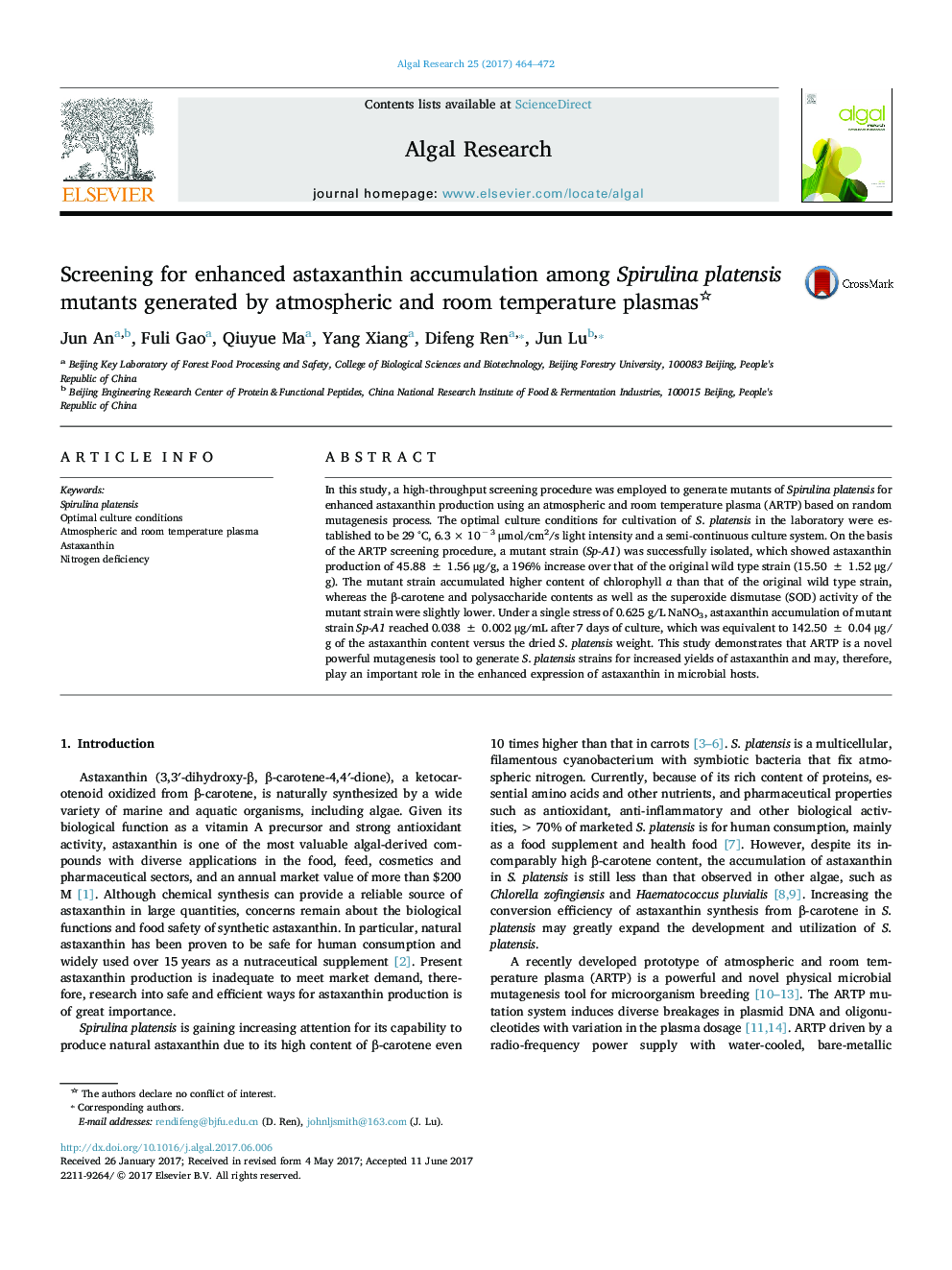| Article ID | Journal | Published Year | Pages | File Type |
|---|---|---|---|---|
| 5478374 | Algal Research | 2017 | 9 Pages |
Abstract
In this study, a high-throughput screening procedure was employed to generate mutants of Spirulina platensis for enhanced astaxanthin production using an atmospheric and room temperature plasma (ARTP) based on random mutagenesis process. The optimal culture conditions for cultivation of S. platensis in the laboratory were established to be 29 °C, 6.3 Ã 10â 3 μmol/cm2/s light intensity and a semi-continuous culture system. On the basis of the ARTP screening procedure, a mutant strain (Sp-A1) was successfully isolated, which showed astaxanthin production of 45.88 ± 1.56 μg/g, a 196% increase over that of the original wild type strain (15.50 ± 1.52 μg/g). The mutant strain accumulated higher content of chlorophyll a than that of the original wild type strain, whereas the β-carotene and polysaccharide contents as well as the superoxide dismutase (SOD) activity of the mutant strain were slightly lower. Under a single stress of 0.625 g/L NaNO3, astaxanthin accumulation of mutant strain Sp-A1 reached 0.038 ± 0.002 μg/mL after 7 days of culture, which was equivalent to 142.50 ± 0.04 μg/g of the astaxanthin content versus the dried S. platensis weight. This study demonstrates that ARTP is a novel powerful mutagenesis tool to generate S. platensis strains for increased yields of astaxanthin and may, therefore, play an important role in the enhanced expression of astaxanthin in microbial hosts.
Related Topics
Physical Sciences and Engineering
Energy
Renewable Energy, Sustainability and the Environment
Authors
Jun An, Fuli Gao, Qiuyue Ma, Yang Xiang, Difeng Ren, Jun Lu,
